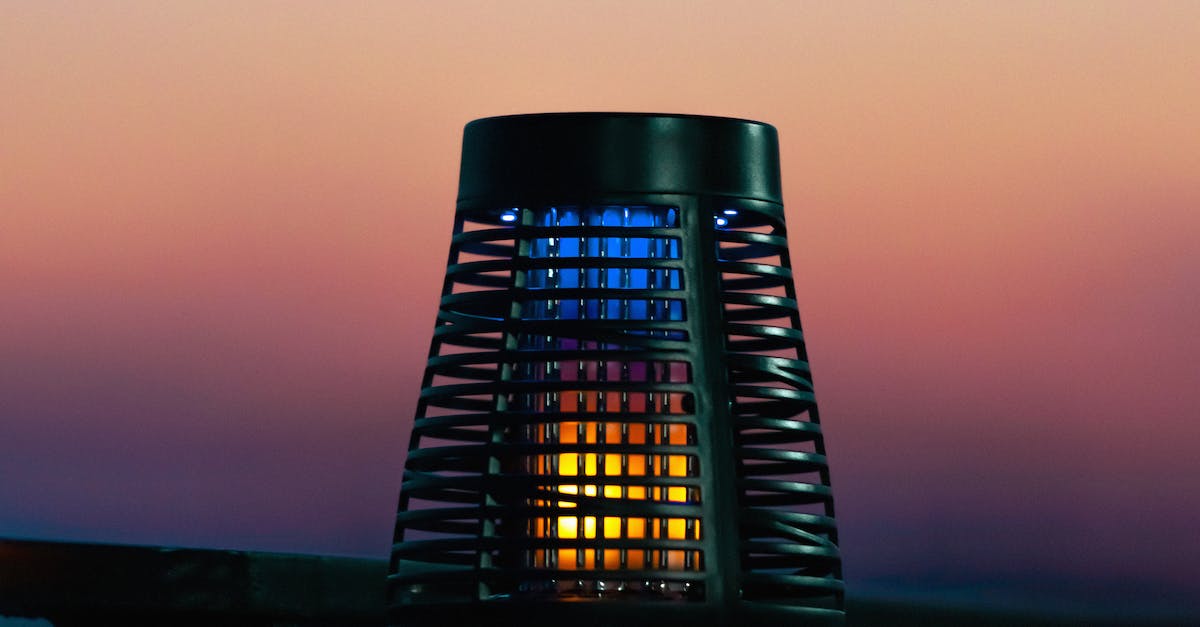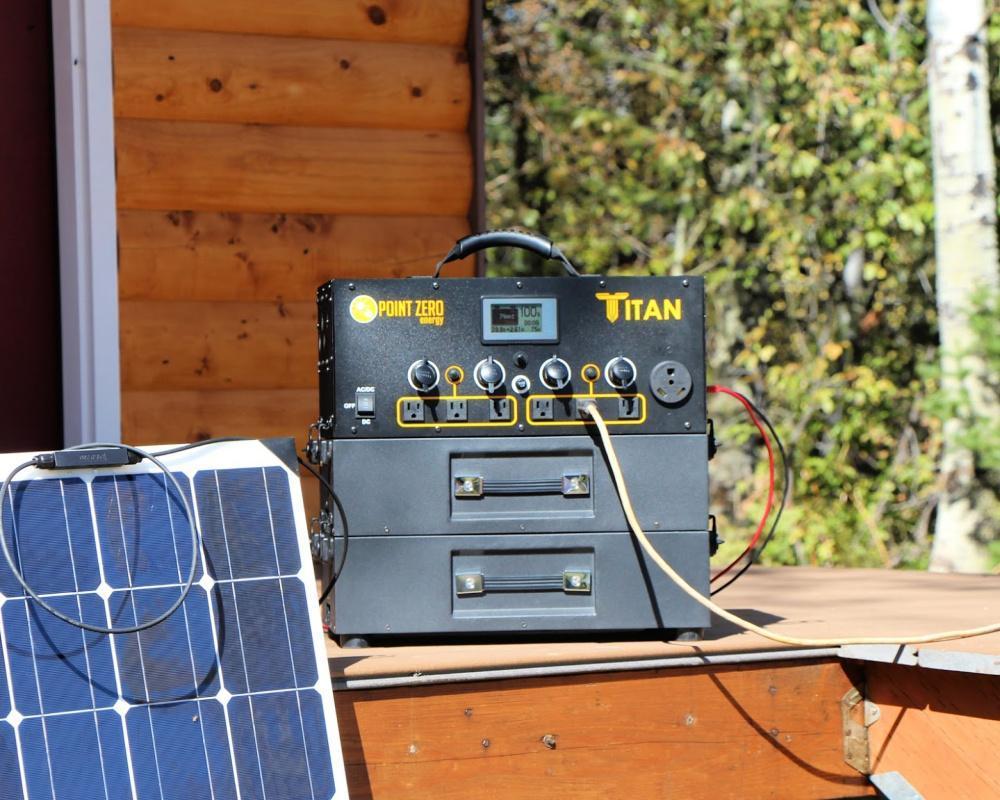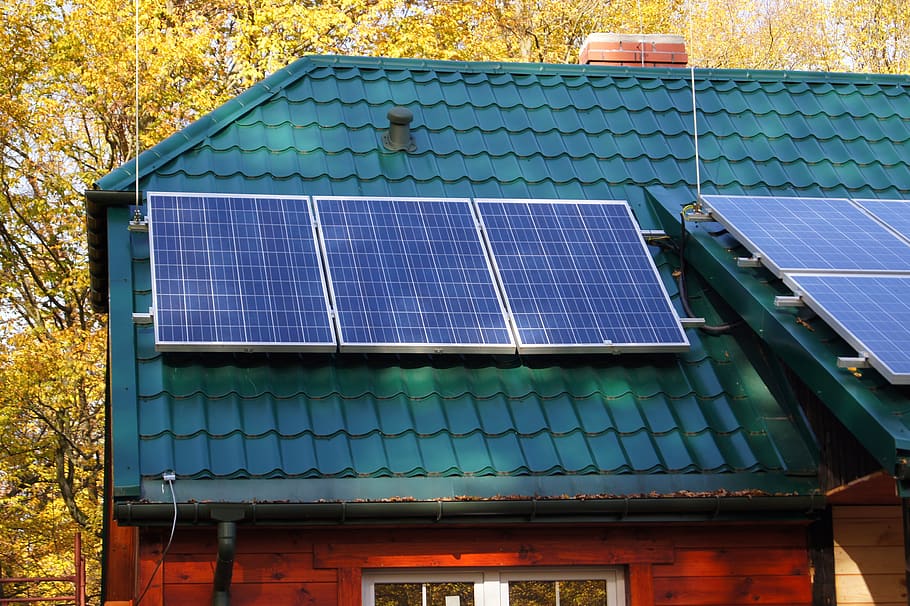A solar bug zapper is a great way to keep your outdoor areas free from pesky insects like mosquitos without costing you a fortune in batteries. These are also quite handy when the power is out, or you’re camping off the grid. Solar bug zappers are available in many models. You’re sure to find one that delivers on your needs. Instead of buying a traditional bug zapper, find out what the solar models offer. In this article, I share why you should consider buying a solar bug zapper. I explain how they work, their benefits, and how they compare to traditional ones.
Solar Bug Zapper vs. Traditional Bug Zapper
There are a few differences between solar- and traditional bug zappers. They have the same functions and features with some minor distinctions.
| Solar Bug Zapper | Traditional Bug Zapper |
| Runs on energy harvested from the sun. This solar power is renewable and free. | Works with grid electricity. You’ll pay for this power if you aren’t on a solar grid. |
| You can install your solar bug zapper wherever sunlight is available. | Zappers that plug in need a power point to work. Without this, you can’t use your traditional bug zapper. |
| Solar zappers are eco-friendly. They don’t omit toxins and work with renewable energy. | Traditional zappers are somewhat eco-friendly. While they don’t omit toxins either, they use power generated primarily by fossil fuels. There’s a lot of pollution involved in this process. |
How Solar Bug Zappers Work
Using solar power is no longer just a trend. It has become a necessity. That’s why you’ll find many traditional devices have a solar-powered alternative. Solar bug zappers work like traditional ones but run on solar power. They have built-in solar panels that harvest sunrays to convert them into electricity. The photovoltaic cells in the panels and the DC-AC inverter in the device make the magic happen.
These zappers also have batteries to store excess power. This makes it possible to use your zapper at night or on cloudy days when sunlight is limited. You can find a solar bug zapper in different voltage and physical sizes. Bigger zappers have larger panels with bigger capacities. Since each zapper comes with its own, you don’t need t buy and install solar panels for this device to work. All solar bug zappers are effective at keeping bugs away. High-voltage zappers work a little better than lower-voltage options, but they all do the trick!
The Cost of Solar Bug Zappers
It’s difficult to give an average set price for solar bug zappers. Their prices differ between brands and sizes since each has unique qualities. You can find many cheap options, but there’s no guarantee they’ll work as well as the costlier ones. It’s always better to opt for quality.
Solar bug zappers are more expensive than the traditional alternative because they have solar panels. The extra parts that you get end up increasing the price. They usually come in packs that contain two or more. These packs can cost anything from $10 up to $60.
3 Reasons to Buy a Solar Bug Zapper
Solar bug zappers can make your life easier, especially if you regularly struggle with pesky bugs. Here are 3 reasons why you should invest in one:
No Running Cost: Traditional bug zappers use electricity that adds to your monthly power bill. Eventually, most users stop using them because of this. Solar bug zappers don’t cost anything to use. You can leave it on for hours or days without spending extra money.
Unlimited Usage: Apart from not costing anything, you can use your zappers anywhere at any time. When there’s a power outage, you won’t be able to keep the little pests away with a traditional bug zapper. You can use your solar zappers during the day, the night, and through power cuts. They can even be used in the forest or near the lake during a fishing trip. Simply place them in a spot with a lot of sunlight and let them do their job!
Effective: Bug zappers work better than most insect repellents and home remedies. Solar zappers don’t cause harm to the environment while effectively keeping bugs away from you and your house.
Are Solar Bug Zappers Worth It?
If you want to buy a new bug zapper, solar is the way to go. You initially pay more for this option, but what you get for the price is worth it. You’ll save money on the running costs in the long term since solar energy doesn’t cost anything.
Solar zappers can be used during power outages, making them perfect for barbecues and late-night porch sessions. They’ll keep the bugs at bay while you sit outside and wait for the electricity to come back on.
Your solar bug zapper is also a much better choice for the environment. Fossil fuels pollute the air more than you may think, and currently, most grid electricity is generated using it. Solar power doesn’t pollute and thus reduces your carbon footprint.
Another benefit is that you can use your solar zapper wherever you want. Your traditional bug zapper will only work if you can access an electrical outlet. The solar model can charge anywhere it receives sunlight, and thanks to its batteries, you can use it at night or on rainy days. Whether camping, spending time on the lake, or enjoying a breakaway off the grid, your solar bug zapper will still work!
Before Bugging Out
Even if you have a solar grid at home, buying a solar bug zapper is a good idea. Like other solar products like a solar water pump, a solar bug zapper is a great tool to have, especially if you live in areas with less than reliable power. These models are portable, won’t ever need a charging point, and can ensure the bugs stay away wherever you are. As long as they have access to sunlight, your solar bug zapper will do its job. If the initial cost makes you wary, remember to think about the benefits these models offer. Unlike traditional bug zappers, solar ones are more reliable and effective.I hope this article inspired you to go shop for a solar bug zapper. If you have more questions or something to add, pop it in the comments!





